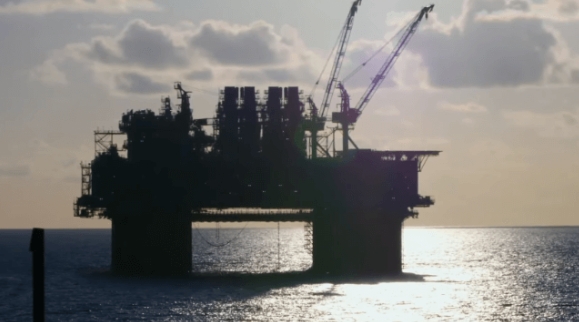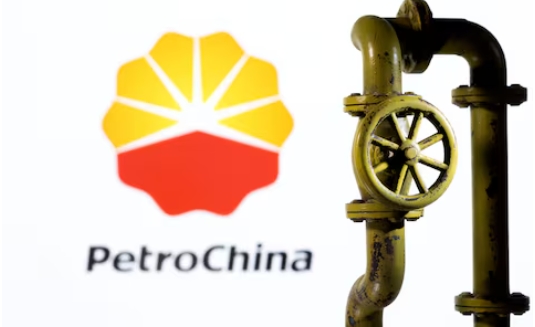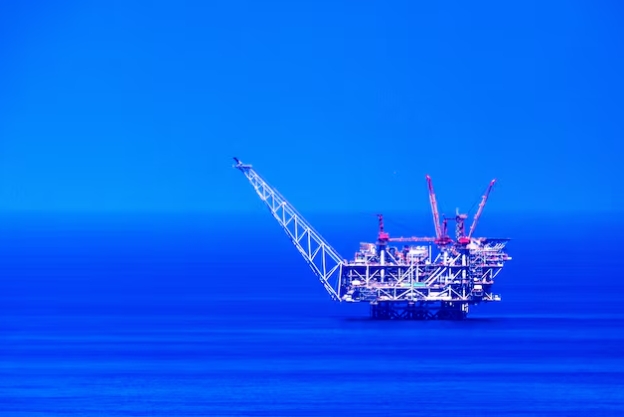In the latest round of hostilities between the world's two biggest economies, Washington announced new tariffs on another $300 billion worth of Chinese goods, while Beijing asked state-owned companies to halt imports of US farm products and devalued the yuan.
The unrestrained Trump-China trade war has already affected global supply chains and stock markets, but it could send oil prices falling below $30 a barrel if China decides to buy Iranian oil, warns Bank of America Merrill Lynch.
“While we retain our $60 a barrel Brent forecast for next year, we admit that a Chinese decision to reinitiate Iran crude purchases could send oil prices into a tailspin,” the Bank of America’s multinational investment division reported on Friday, according to CNBC.
The report added that the move would “undermine US foreign policy” and “cushion the negative terms-of-trade effects on the Chinese economy of rising US tariffs.”
The United States has adopted a “maximum pressure” policy against Iran, accusing the country of violating the 2015 nuclear deal and sponsoring terrorism. After quitting the landmark agreement last May, the Trump administration reimposed crippling economic sanctions against the Islamic Republic, including against its vital energy exports.
The aim was to bring Iran’s oil exports to zero, but the embattled nation says US efforts fell flat.
“The Americans have not achieved any success against Iran. They wanted to bring oil sales down to zero, but they did not succeed,” Iran’s parliament speaker Ali Larijani told lawmakers Tuesday.
According to S&P Global Platts estimates, Iranian oil exports have, in fact, not fallen to zero but still have taken a significant hit. The country is said to have shipped below 550,000 barrels per day in June 2019, as against nearly 875,000 bd in May and some 2.5 million bd last April, before Trump withdrew from the nuclear deal.
Defying US Sanctions
Meanwhile, the Trump administration is reportedly tracking the movement of China-linked tankers, which are suspected to be transporting Iranian crude to China in circumvention of US sanctions.
Data from ship-tracking services shows that Iranian tankers have been transporting oil to China, and to the Eastern Mediterranean, possibly to Syria and Turkey.
Last month, the US treasury sanctioned Zhuhai Zhenrong Limited, a Chinese oil trader, for importing Iranian crude. Beijing sharply criticized the move, calling it “illegal” and insisting that the company had not violated international law.
Trade War, 2018-2019
The two superpowers are locked in a year-long trade war, initially prompted by Donald Trump’s to fix the yawning trade gap with Beijing, which stood at $419 billion in goods trade in 2018.
The US and China have exchanged several rounds of multi-billion tit-for-tat tariffs, and Trump last week announced an additional 10 per cent tariff on $300 billion in Chinese imports.
Beijing vowed to retaliate, just like it previously did, and asked state-owned enterprises to suspend agricultural imports from the United States.
China this week also lowered the value of its currency, the yuan, below its 7 to 1 peg against the greenback – its lowest level since 2008 – which makes Chinese goods cheaper in terms of US dollars and, therefore, more attractive to consumers.
The US Treasury accused China of ‘currency manipulation’ and pledged to complain about the move to the International Monetary Fund, but China’s central bank flatly rejected the accusations.
After the move caused stocks and crude oil to slump, China took steps to stabilise the yuan’s slide.







